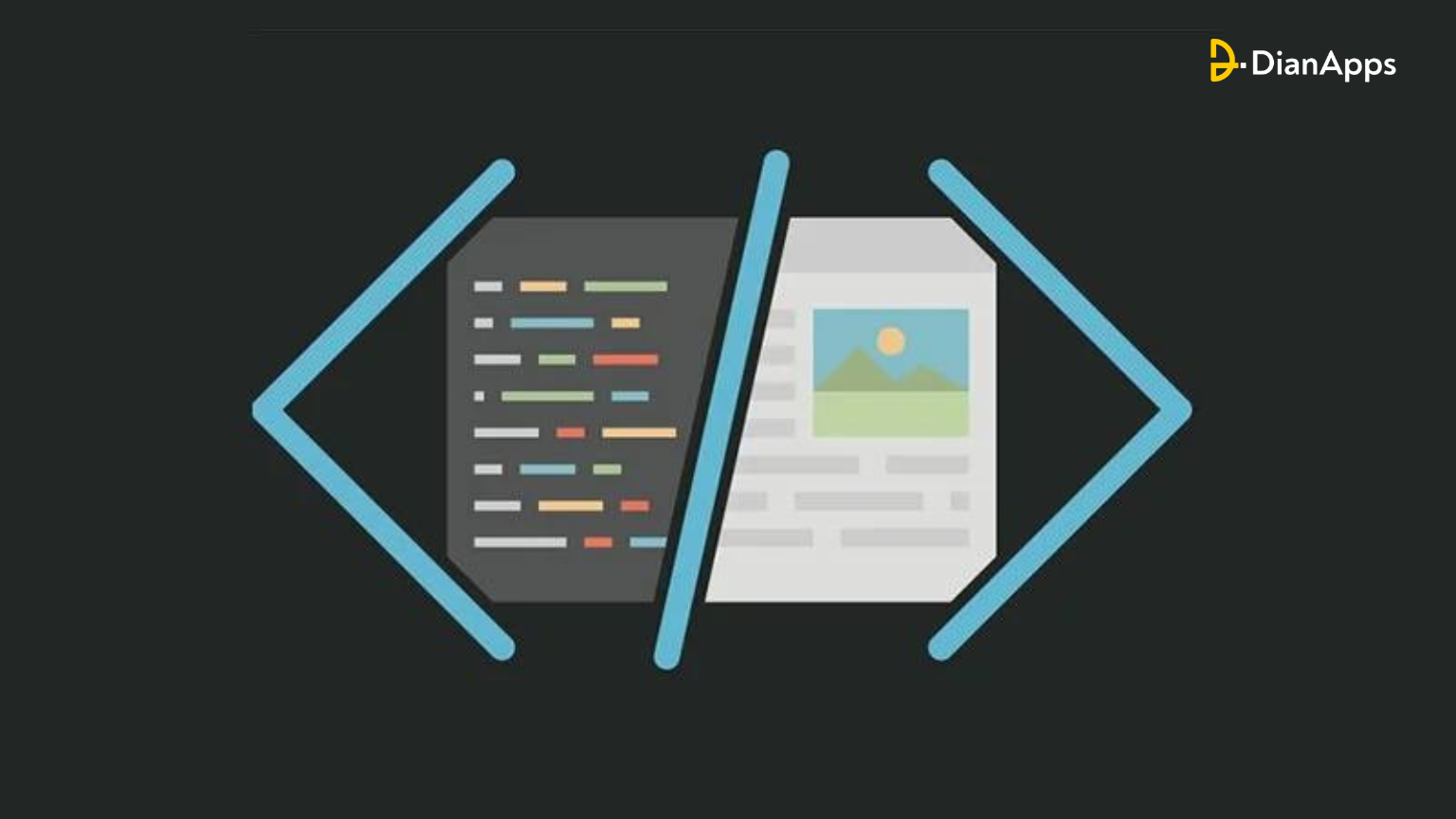6 Reasons Why Full Stack Development is Right for Your Business
A full-stack developer can handle every step of the development process, including designing and building interfaces and client- or server-side scripting. Like a versatile performer, a great full-stack development company is capable of anything. They are capable of creating MVC, servers, databases, APIs, and whole apps.
Full-stack developers may assist people or businesses in making significant financial savings while dealing with various development phases. A full-stack app developer is skilled in front-end, back-end, server, and mobile development and design. They can ultimately supervise every aspect of the project.
When your company is operating on a limited budget, you want to avoid spending any money on paying salaries. You should be aware that this is the main drain on your important resources. Anything that saves your company money is therefore a profit for you. Full-stack development is one of those increasingly well-liked work styles since it is a resource-conscious approach to creating.
- For full-stack engineers, being able to create both front-end and back-end code is no longer a challenge.
- Can create a minimal viable product with little or no assistance.
- Thorough knowledge of a few technologies
- Ability to show some comprehension of technology they haven’t used before
What is Full stack development?
Full-stack development refers to the process of developing web applications or software that includes both front-end and back-end development. A full-stack developer is a software app developer who can work on both the client-side (front-end) and the server-side (back-end) of an application.
Front-end development refers to the part of the application that the user sees and interacts with, such as the user interface and user experience design, and the development of web pages using HTML, CSS, and JavaScript. But why are Front-end development services important? Know it by reading our previous written blog.
Back-end development, on the other hand, refers to the part of the application that handles data management, business logic, and server-side operations. This involves programming languages such as Python, Ruby, PHP, and databases such as MySQL or PostgreSQL.
Also read: Top 5 PHP frameworks that a web developer must know
A full-stack developer has the knowledge and expertise to work on all aspects of the application, from the design of the user interface to the development of the server-side logic, and can provide end-to-end solutions for web app development services. They are proficient in various programming languages, frameworks, and technologies, and can work on multiple parts of the project, making them a valuable asset to any business that requires a web application.
Statistics on Full stack development
- According to a report by Indeed, the average salary for a web app developer in the United States is $113,269 per year as of April 2021.
- The demand for full-stack developers has increased significantly in recent years. According to a report by Burning Glass Technologies, job postings for full-stack developers grew 75% between 2015 and 2020.
- According to a survey by Stack Overflow, full-stack development is the most commonly used development approach, with over 55% of developers using it in their work.
- According to a report by Deloitte, companies are increasingly looking for full-stack developers who have expertise in multiple programming languages and technologies, as this can lead to faster development times and more efficient solutions.
- A survey by HackerRank found that full-stack developers are the most in-demand developers in the tech industry, with 38% of respondents reporting that they were seeking full-stack developers for their teams.
These statistics highlight the increasing demand for full-stack developers in the tech industry, as well as the high salaries and job growth opportunities for those with expertise in this field.
Importance of Having Full Stack Development For Your Business
Full-stack development is a powerful approach that enables developers to build end-to-end solutions by handling both front-end and back-end development. It involves proficiency in both client-side and server-side development, which makes it an essential skill set in modern web development. Here are some reasons why having full-stack development for your business is important:
1. Efficient development process:
Full-stack developers are well-versed in both frontend and backend development, which means they can work on multiple aspects of your application, reducing development time and costs.
2. Flexibility:
With a full-stack developer on board, you can easily pivot your project and make changes to your application without relying on multiple developers or teams.
3. Cost-effective:
Hire full-stack developers to save costs associated with hiring separate developers for front-end and back-end development.
4. Enhanced teamwork:
Full-stack developers have a better understanding of both sides of the development process, which makes it easier for them to collaborate with other team members and work towards a common goal.
5. Better problem-solving:
Full-stack developers are proficient in both frontend and backend development, which enables them to quickly identify and solve problems that may arise during development.
6. Improved user experience:
Full-stack developers are equipped to create applications that are not only visually appealing but also highly functional, leading to a better user experience.
7. Ability to take on diverse projects:
Full-stack developers have the skills to work on different types of projects, ranging from web development to mobile app development, making them a valuable asset to any business.
Reasons Why You Need Full Stack Developers for Your Business
1. Complete Solutions:
Full-stack development companies provide end-to-end development solutions, covering both front-end and back-end development. They can handle all aspects of your project, from designing the user interface to deploying the application. This approach ensures that the final product is cohesive, efficient, and user-friendly.
2. Expertise:
Full-stack development companies employ developers who have various programming skills needed in front-end, frameworks, and technologies. They are capable of creating cutting-edge web applications that are scalable, efficient, and robust. With their knowledge and skills, they can provide solutions that are tailored to your business needs.
3. Faster Development Time:
Full-stack development companies can deliver web applications in a shorter time frame compared to hiring dedicated development teams for front-end and back-end development. This is because full-stack developers can work on both aspects of the project simultaneously, reducing development time and costs.
4. Cost-Effective:
Hiring a website development company can be cost-effective compared to hiring separate teams for front-end and back-end development. This is because full-stack developers can handle multiple aspects of the project, reducing the need to hire additional staff. This leads to lower costs and a faster return on investment.
5. Easy Collaboration:
Full-stack development companies promote easy collaboration between developers, designers, and project managers. This enables them to work together to achieve a common goal, leading to the successful completion of the project. This approach ensures that the final product meets your expectations and is delivered on time.
6. Scalability:
Full-stack development companies are equipped to handle projects of all sizes, from small businesses to large corporations. They have the skills and expertise to scale web applications according to the growth and needs of your business. This ensures that your web application can accommodate the needs of your growing business.
Tips to Build Full-Stack Applications For Businesses
Before building a full-stack application for businesses, it’s important to consider a few key tips to ensure that the application is developed efficiently and meets the unique needs of the business. Here are some tips to keep in mind:
Understand the Business Needs:
Before starting the development process, it’s important to fully understand the needs and goals of the business. This includes understanding the target audience, the key features and functionality required, and any specific business requirements. Choose the Right Technology Stack:
Selecting the right technology stack is critical to the success of the application. This includes choosing the appropriate front-end and back-end web development technologies, frameworks, and libraries. It’s important to choose technologies that are scalable, reliable, and can integrate with other systems as needed.
Read the top Frontend frameworks to use in 2023
Plan for Scalability:
It’s important to plan for scalability from the outset, as the application may need to grow and evolve as the business expands. This includes designing the application architecture to accommodate growth, using cloud-based technologies, and implementing performance monitoring tools.
Focus on User Experience:
The user experience is a critical component of any application, and it’s important to focus on developing an application that is easy to use, intuitive and provides value to the user. This includes conducting user research, designing a user-friendly interface, and implementing user feedback mechanisms.
Test and Iterate:
Testing and iteration are critical components of the development process, as they help to identify and resolve issues before the application is launched. This includes conducting thorough testing at each stage of development, implementing user feedback, and making iterative improvements based on user needs and feedback.
Plan for Maintenance and Support:
Planning for maintenance and support from the outset can help to ensure that the application remains up-to-date and continues to meet the needs of the business. This includes planning for ongoing updates and enhancements, as well as providing ongoing support to users and addressing any issues that arise.
Trends of Full-Stack Development
The field of full-stack development is constantly evolving, with new technologies, frameworks, and techniques emerging all the time. Here are some of the latest trends in full-stack development:
Single-Page Applications (SPAs):
SPAs have become increasingly popular in recent years, as they provide a seamless user experience by loading content dynamically on a single web page. Frameworks such as React and Angular have become popular for building SPAs.
Hire React.js developers from DianApps!
Progressive Web Apps (PWAs):
PWAs are web applications that provide a mobile app-like experience to users, with features such as offline functionality and push notifications. They are becoming increasingly popular as businesses look to provide a seamless user experience across devices.
Serverless Architecture:
Serverless architecture involves building applications without the need for a dedicated server, using cloud-based technologies such as AWS Lambda or Azure Functions. This can result in reduced costs, improved scalability, and faster deployment times.
Artificial Intelligence (AI):
AI is being integrated into many web applications, from chatbots to personalized recommendations. Frameworks such as TensorFlow and PyTorch are becoming popular for implementing AI in full-stack applications.
Microservices Architecture:
Microservices architecture involves building applications as a collection of smaller, independent services, each with its own specific functionality. This can result in improved scalability, flexibility, and faster development times.
Low-Code/No-Code Development:
Low-code/no-code development platforms are becoming increasingly popular, enabling an app development company to build full-stack applications with minimal coding. These platforms can reduce development times and costs, and enable businesses to quickly build custom applications.
Why is DianApps the best Full-Stack developer for business?
DianApps is a reliable software app development company that can provide end-to-end solutions for businesses looking to develop efficient, high-quality web applications. Here are some reasons why DianApps stands out as a top choice for businesses:
Expertise:
DianApps has a team of expert full-stack developers who have extensive experience in developing web applications using various programming languages, frameworks, and technologies. Their team is proficient in both front-end and back-end development, enabling them to provide comprehensive solutions that meet the unique needs of businesses.
Client-Centric Approach:
DianApps takes a client-centric approach to their work, ensuring that they fully understand the needs and goals of their clients before developing a solution. They work closely with their clients to ensure that the final product meets their expectations and provides value to their business.
Quality Assurance:
DianApps places a strong emphasis on quality assurance, ensuring that every application they develop is thoroughly tested and meets high standards of performance and usability. Their team is committed to delivering solutions that provide a seamless user experience and meet the needs of businesses.
Cost-Effective:
DianApps offers cost-effective solutions for businesses looking to develop web applications. They work closely with their clients to develop solutions that meet their needs while staying within their budget, ensuring that businesses get the most value for their investment.
Timely Delivery:
DianApps is committed to delivering solutions on time, ensuring that businesses can meet their project timelines and achieve their goals. They work closely with their clients to develop realistic project timelines and milestones and keep them informed throughout the development process.
Maintenance and Support:
DianApps offers maintenance and support services for the web applications they develop, ensuring that their clients’ applications remain up-to-date and running smoothly. Their team is available to provide ongoing support and make updates as needed, ensuring that businesses can focus on their core operations without worrying about their web applications.
Read why website maintenance is important.




